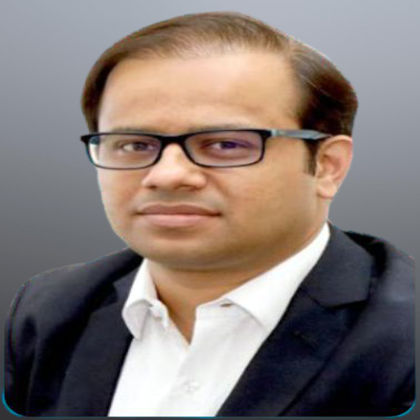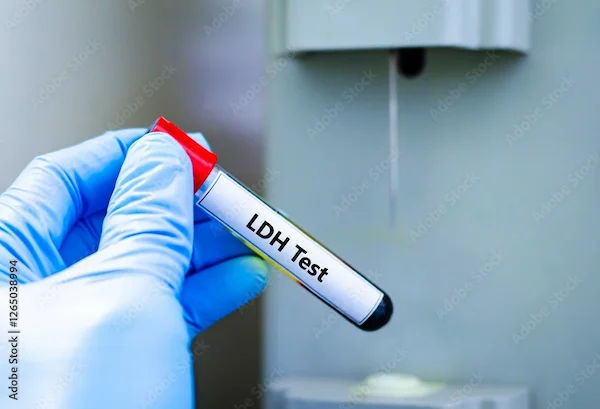Huntington's Disease Overview: Symptoms and Treatment
Explore Huntington's disease, its genetic causes, early symptoms, progression, and available treatment options to manage this neurological disorder and improve quality of life.

Written by Dr. Dhankecha Mayank Dineshbhai
Reviewed by Dr. Vasanthasree Nair MBBS
Last updated on 13th Jan, 2026

Huntington’s disease (HD) is a rare and progressive brain disorder that affects movement, thinking, and behavior. It is caused by a genetic mutation and usually appears in adulthood, gradually worsening over time. While there is no cure yet, treatments and lifestyle changes can help manage symptoms and improve quality of life.
This article will help you understand Huntington’s disease, its symptoms, causes, and available treatments in simple terms.
What is Huntington’s Disease?
Huntington’s disease is an inherited condition where nerve cells in the brain break down over time. This affects a person’s ability to move, think, and control emotions. Symptoms usually start between the ages of 30 and 50, but in rare cases, they can appear earlier (juvenile HD) or later in life.
Symptoms of Huntington’s Disease
The symptoms of HD vary from person to person but generally fall into three categories:
1. Movement Problems
- Involuntary jerking or twitching (chorea): Uncontrolled movements, especially in the arms, legs, and face.
- Muscle stiffness or rigidity: Difficulty with balance and coordination.
- Slow or abnormal eye movements: Trouble focusing or moving eyes smoothly.
- Difficulty with speech and swallowing: Slurred speech and trouble eating.
2. Cognitive (Thinking) Problems
- Trouble focusing and making decisions: Difficulty organising thoughts or multitasking.
- Memory lapses: Forgetting familiar tasks or information.
- Slow processing of thoughts: Taking longer to respond or understand conversations.
3. Emotional and Behavioural Changes
- Depression, anxiety, or irritability: Mood swings and emotional instability.
- Social withdrawal: Losing interest in activities or people.
- Impulsive behaviour: Acting without thinking, leading to risky decisions.
Symptoms worsen gradually, and in later stages, patients may need full-time care.
What Causes Huntington’s Disease?
HD is caused by a faulty gene (HTT gene) that produces an abnormal protein called huntingtin. This protein damages brain cells, particularly in areas controlling movement, memory, and emotions.
Is Huntington’s Disease Inherited?
Yes, it is a genetic disorder. If one parent has HD, each child has a 50% chance of inheriting the gene.
Genetic testing can confirm if someone carries the gene before symptoms appear.
Consult Top Specialists
How is Huntington’s Disease Diagnosed?
If you or a loved one shows symptoms of HD, a doctor may recommend:
- Neurological exam: Checking movement, balance, and reflexes.
- Psychiatric evaluation: Assessing mood and cognitive function.
- Genetic testing: A blood test to confirm the presence of the HD gene.
- Brain imaging (MRI/CT scan): To check for changes in brain structure.
If you suspect HD in your family, consider genetic counselling to understand risks and testing options.
Treatment and Management of Huntington’s Disease
While there is no cure for HD, treatments can help manage symptoms and improve quality of life.
1. Medications
- Movement control drugs: Tetrabenazine or deutetrabenazine to reduce involuntary movements.
- Antidepressants & mood stabilisers: To manage depression, anxiety, or irritability.
- Antipsychotic medications: For severe behavioural issues or hallucinations.
2. Therapy and Support
- Physical therapy: Improves strength, balance, and mobility.
- Speech therapy: Helps with swallowing and communication difficulties.
- Occupational therapy: Assists in adapting daily activities for independence.
- Psychological counselling: Supports emotional well-being for patients and families.
3. Lifestyle and Home Care Tips
- Healthy diet & hydration: Soft or liquid foods may help if swallowing is difficult.
- Regular exercise: Gentle activities like walking or yoga can maintain mobility.
- Mental stimulation: Puzzles, reading, and social interactions slow cognitive decline.
- Support groups: Connecting with others facing HD can provide emotional support.
When to See a Doctor?
If you or a family member experience:
- Uncontrolled movements
- Memory problems or personality changes
- Difficulty speaking or swallowing
Consult a neurologist for evaluation. Early diagnosis helps in better symptom management.
Can Huntington’s Disease Be Prevented?
Since HD is genetic, prevention focuses on:
- Genetic counselling: Helps families understand risks before planning children.
- Prenatal testing: Detects HD in an unborn baby if parents carry the gene.
Hope for the Future
- Researchers are studying new treatments, including:
- Gene-silencing therapies: To block the faulty HD gene.
- Stem cell treatments: To repair damaged brain cells.
Clinical trials offer hope, and patients can explore participation through specialists.
Conclusion
Huntington’s disease is challenging, but with proper care, patients can maintain a good quality of life. If you suspect HD in your family, genetic testing and early medical support can make a big difference.
If you or a loved one is experiencing symptoms, consult a neurologist for guidance. You can book an appointment or schedule a test through Apollo 24|7 for expert care.
Remember, you’re not alone—support is available to help you through this journey.
Consult Top Specialists
Consult Top Specialists

Dr. Sandeep Gurram
Neurologist
12 Years • MBBS, MD(Internal Medicine), DM(Neurology), PDF(Movement disorders) - NIMHANS
Secunderabad
Apollo Hospitals Secunderabad, Secunderabad

Dr. H Rahul
Neurologist
10 Years • MBBS, MD(Gen. Med.), DM(Neuro)
Secunderabad
Apollo Hospitals Secunderabad, Secunderabad
(100+ Patients)

Dr. Suresh P
Neurologist
9 Years • MD, DM(Neuro)
Madurai
Apollo Speciality Hospitals KK Nagar, Madurai
(50+ Patients)

Dr. Nipun Puranik
Neurologist
8 Years • MBBS MD, DM
Indore
Apollo Hospitals Vijay Nagar, Indore

Dr. Sushant Aildasani
Neurologist
4 Years • M B B S , M D MEDICINE ( GOLD MEDAL) D M ( NEUROLOGY )
Indore
Apollo Hospitals Vijay Nagar, Indore
(25+ Patients)
Consult Top Specialists

Dr. Sandeep Gurram
Neurologist
12 Years • MBBS, MD(Internal Medicine), DM(Neurology), PDF(Movement disorders) - NIMHANS
Secunderabad
Apollo Hospitals Secunderabad, Secunderabad

Dr. H Rahul
Neurologist
10 Years • MBBS, MD(Gen. Med.), DM(Neuro)
Secunderabad
Apollo Hospitals Secunderabad, Secunderabad
(100+ Patients)

Dr. Suresh P
Neurologist
9 Years • MD, DM(Neuro)
Madurai
Apollo Speciality Hospitals KK Nagar, Madurai
(50+ Patients)

Dr. Nipun Puranik
Neurologist
8 Years • MBBS MD, DM
Indore
Apollo Hospitals Vijay Nagar, Indore

Dr. Sushant Aildasani
Neurologist
4 Years • M B B S , M D MEDICINE ( GOLD MEDAL) D M ( NEUROLOGY )
Indore
Apollo Hospitals Vijay Nagar, Indore
(25+ Patients)
